Related Research Articles
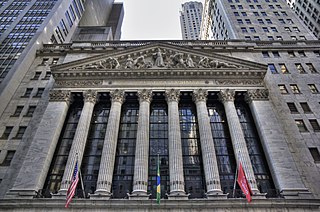
A stock exchange, securities exchange, or bourse is an exchange where stockbrokers and traders can buy and sell securities, such as shares of stock, bonds and other financial instruments. Stock exchanges may also provide facilities for the issue and redemption of such securities and instruments and capital events including the payment of income and dividends. Securities traded on a stock exchange include stock issued by listed companies, unit trusts, derivatives, pooled investment products and bonds. Stock exchanges often function as "continuous auction" markets with buyers and sellers consummating transactions via open outcry at a central location such as the floor of the exchange or by using an electronic system to process financial transactions.

A stock market, equity market, or share market is the aggregation of buyers and sellers of stocks, which represent ownership claims on businesses; these may include securities listed on a public stock exchange as well as stock that is only traded privately, such as shares of private companies that are sold to investors through equity crowdfunding platforms. Investments are usually made with an investment strategy in mind.

Lakshmi, also known as Shri, is one of the principal goddesses in Hinduism, revered as the goddess of wealth, fortune, prosperity, beauty, fertility, royal power and abundance. She along with Parvati and Sarasvati, forms the trinity called the Tridevi.

Diwali, also called Deepavali or Deepawali, is the Hindu festival of lights, with variations celebrated in other Indian religions such as Jainism and Sikhism. It symbolises the spiritual victory of Dharma over Adharma, light over darkness, good over evil, and knowledge over ignorance. Diwali is celebrated during the Hindu lunisolar months of Ashvin and Kartika—between around mid-September and mid-November. The celebrations generally last five or six days.

BSE Limited, also known as the Bombay Stock Exchange (BSE), is an Indian stock exchange which is located on Dalal Street. Established with the efforts of cotton merchant Premchand Roychand in 1875, it is the oldest stock exchange in Asia, and also the tenth oldest in the world. The BSE is the world's 6th largest stock exchange with a market capitalization exceeding US$5 trillion on May 21, 2024.
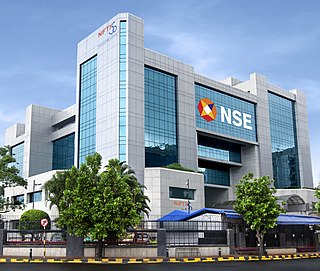
National Stock Exchange of India Limited (NSE) is one of the leading stock exchanges in India, based in Mumbai. NSE is under the ownership of various financial institutions such as banks and insurance companies. It is the world's largest derivatives exchange by number of contracts traded and the third largest in cash equities by number of trades for the calendar year 2022. It is the 7th largest stock exchange in the world by total market capitalization, exceeding $5 trillion on May 23, 2024. NSE's flagship index, the NIFTY 50, is a 50 stock index that is used extensively by investors in India and around the world as a barometer of the Indian capital market. The NIFTY 50 index was launched in 1996 by NSE.

Rangoli is an art form that originates from the Indian subcontinent, in which patterns are created on the floor or a tabletop using materials such as powdered limestone, red ochre, dry rice flour, coloured sand, quartz powder, flower petals, and coloured rocks. It is an everyday practice in many Hindu households; however, making it is mostly reserved for festivals and other important celebrations as it is time-consuming. Rangolis are usually made during Diwali or Tihar, Onam, Pongal, and other Hindu festivals in the Indian subcontinent, and are most often made during Diwali. Designs are passed from one generation to the next, keeping both the art form and the tradition alive.

The BSE SENSEX is a free-float market-weighted stock market index of 30 well-established and financially sound companies listed on the Bombay Stock Exchange. The 30 constituent companies which are some of the largest and most actively traded stocks, are representative of various industrial sectors of the Indian economy. Published since 1 January 1986, the S&P BSE SENSEX is regarded as the pulse of the domestic stock markets in India. The base value of the SENSEX was taken as 100 on 1 April 1979 and its base year as 1978–79. On 25 July 2001 BSE launched DOLLEX-, a dollar-linked version of the SENSEX.
Ketan Parekh is a former stockbroker from Mumbai, who was convicted in 2008 for involvement in the Indian stock market manipulation scam that occurred from late 1998 to 2001. During this period, Parekh artificially rigged prices of certain chosen securities, using large sums of money borrowed from banks including the Madhavpura Mercantile Co-operative Bank, of which he himself was a director.

Tihar is a five-day spiritual and cultural Hindu festival of lights celebrated by Nepalese as well as by the Indian Gorkhas inhabiting Sikkim state and Territories. Tihar is analogous to the Indian festival of Diwali, the festival of lights, but both are different Festival.
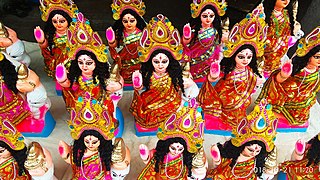
Sharad Purnima is a religious festival celebrated on the full moon day of the Hindu lunar month of Ashvin, marking the end of the monsoon season. The full moon night is celebrated in different ways in various cultural regions across Indian subcontinent.

Amāvásyā is the lunar phase of the new moon in Sanskrit. Indian calendars use 30 lunar phases, called tithi in India. The dark moon tithi is when the Moon is within 12 degrees of the angular distance between the Sun and Moon before conjunction (syzygy). The New Moon tithi is the 12 angular degrees after syzygy. Amāvásyā is often translated as new moon since there is no standard term for the Moon before conjunction in English.
Kolkata has many festivals throughout the year. The largest and most magnificently celebrated festival of the city is Durga Puja, and it features colourful pandals, decorative idols of Hindu goddess Durga and her family, lighting decorations and fireworks. Other major festivals are Diwali, Kali Puja, Holi, Saraswati Puja, Poush Parbon, Poila Boishakh, Christmas, Eid al-Fitr, Eid al-Adha, etc.
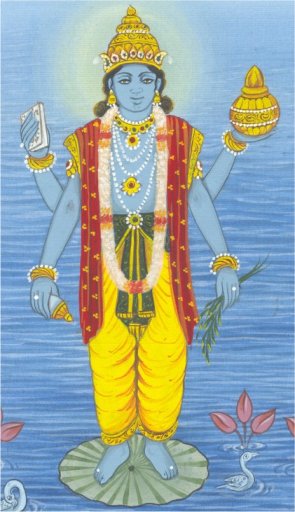
Dhanteras, also known as Dhanatrayodashi, is the first day that marks the festival of Diwali or Tihar in most of India and Nepal
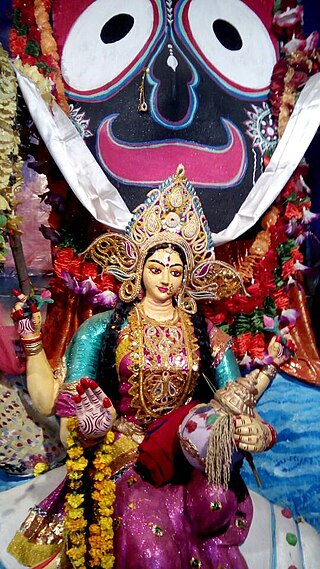
Lakshmi Puja or Lokkhi Pujo is a Hindu occasion for the veneration of Lakshmi, the Goddess of Prosperity and the Supreme Goddess of Vaishnavism. The occasion is celebrated on the amavasya in the Vikram Samvat Hindu calendar month of Ashwayuja or Kartika, on the third day of Deepavali (Tihar) in Nepal and most parts of India. In Odisha, Assam, Bengal this puja is celebrated five days after Vijaya Dashami.

Varalakshmi Vratam, also called Varalakshmi Puja, is a Hindu observance to propitiate the goddess of wealth, Lakshmi. Varalakshmi is the manifestation of Lakshmi who grants boons (varam). It is a puja primarily performed by married Hindu women in the states of South India. This occasion is observed on the Friday before the day of the full moon - Purnima - in the Hindu month of Shravana, which corresponds to the Gregorian months of July – August.
Here is a list of glossary of culture of India in alphabetical order:

Swanti is a five-day festival of Nepal which is one of the year's greatest celebrations for the Newar people. It is the Newar version of Tihar or Diwali. The festival highlights the central role of women in the household, and the rituals are related to wishing for good fortune of the family members by presenting them auspicious items and praying for longevity by placating the god of death.
Since the beginning of the Bombay stock exchange, stock markets in India, particularly the Bombay Stock Exchange and National Stock Exchange of India have seen a number of booms as well as crashes.
The 1992 Indian stock market scam was a market manipulation carried out by Harshad Mehta with other bankers and politicians on the Bombay Stock Exchange. The scam caused significant disruption to the stock market of India, defrauding investors of over ten million USD.
References
- ↑ Mudgill, Amit. "Muhurat Trading: Will Sensex break the pattern and make a mark?" – via The Economic Times.
- ↑ "Muhurat Trading Session".
- ↑ "NSE and BSE Muhurat Trading 2020 Date, Time, and Best Picks". Above Stocks. Retrieved 29 October 2020.